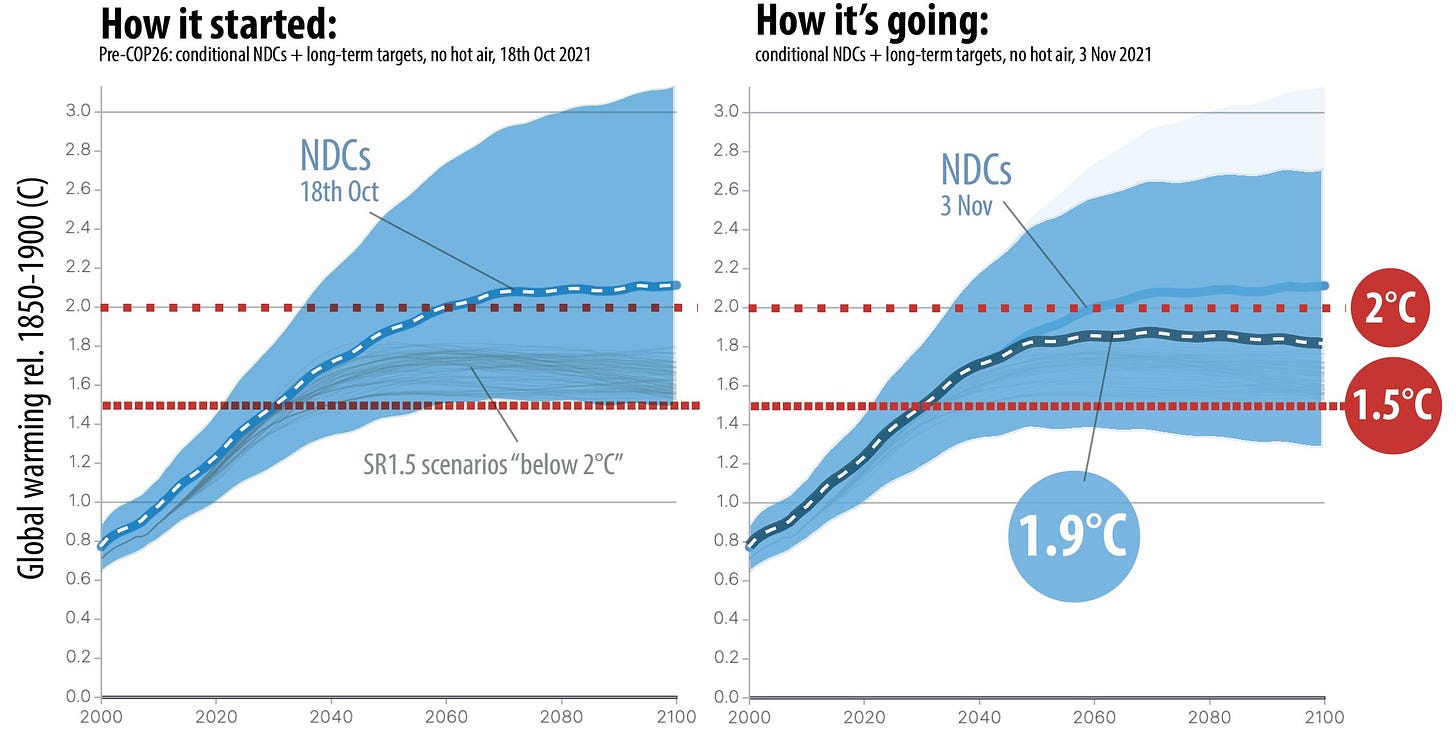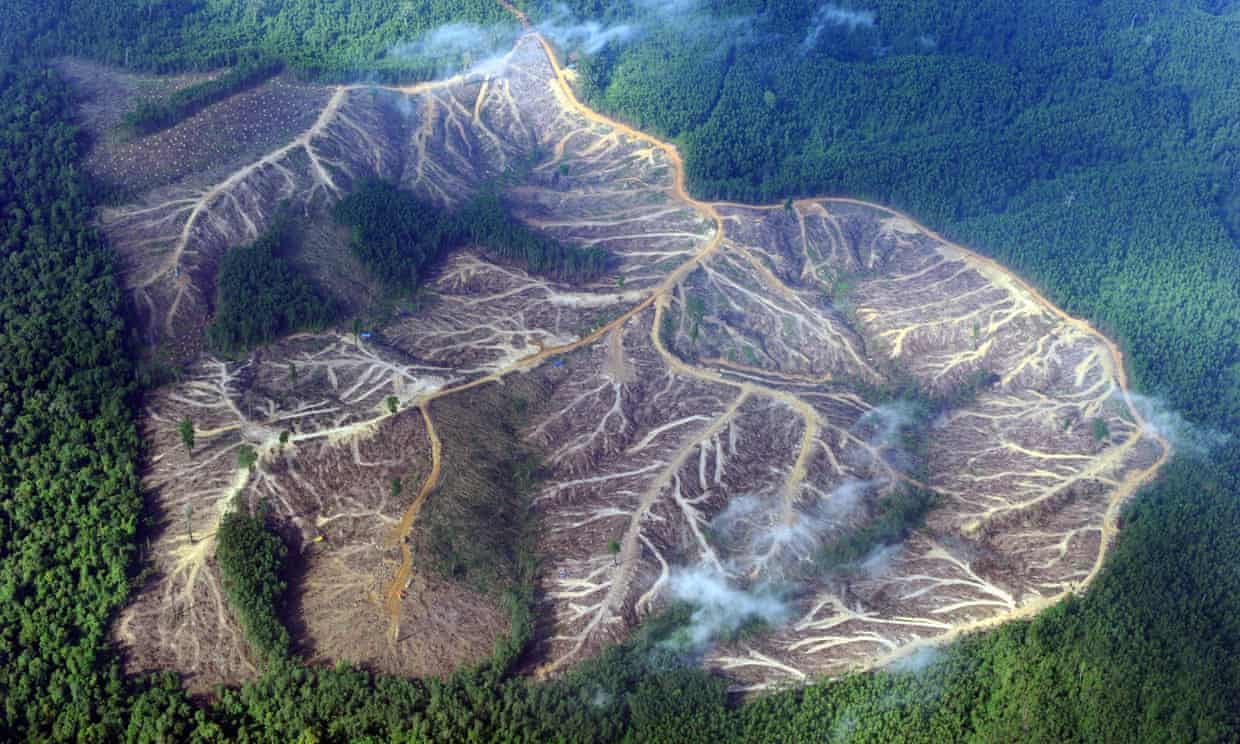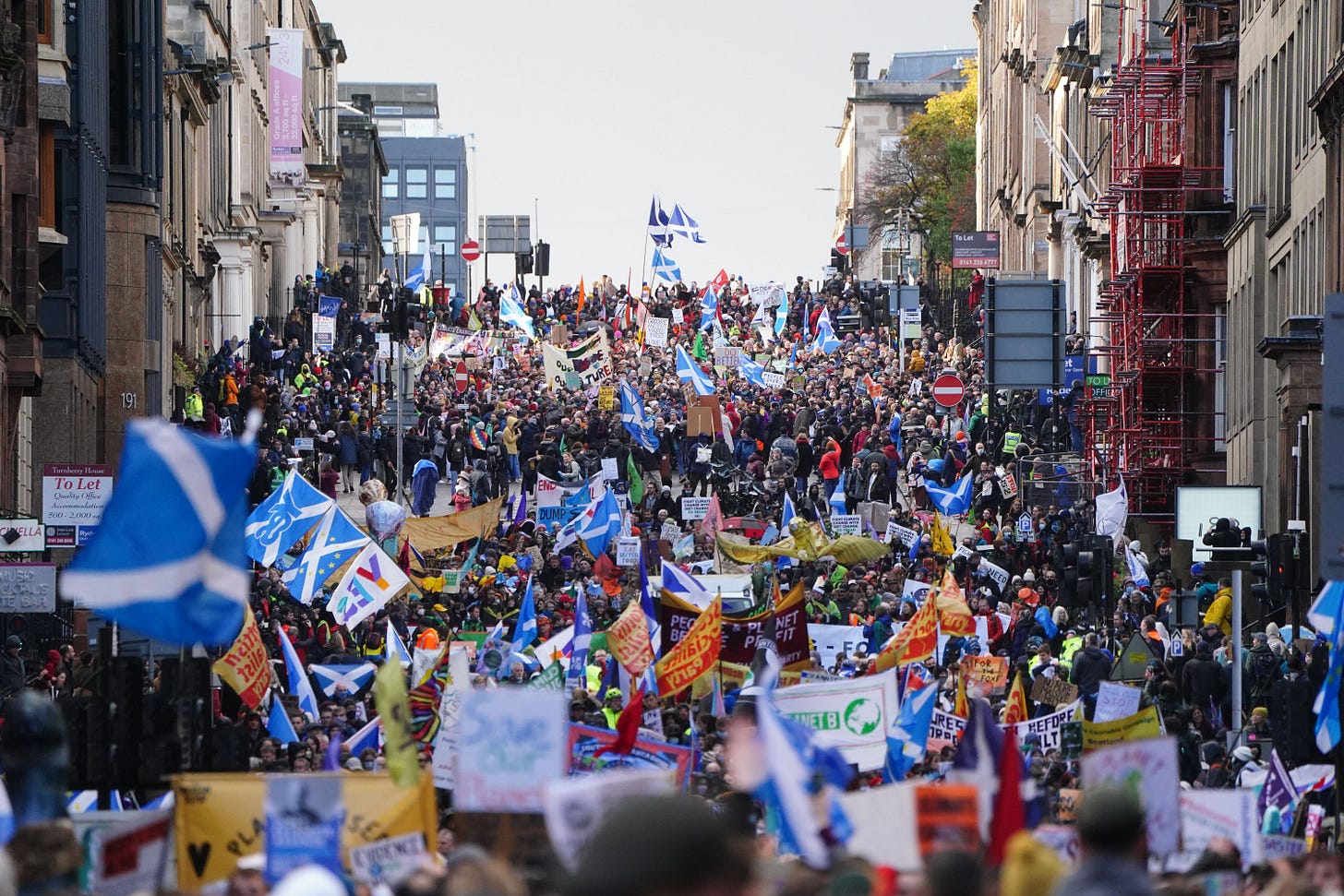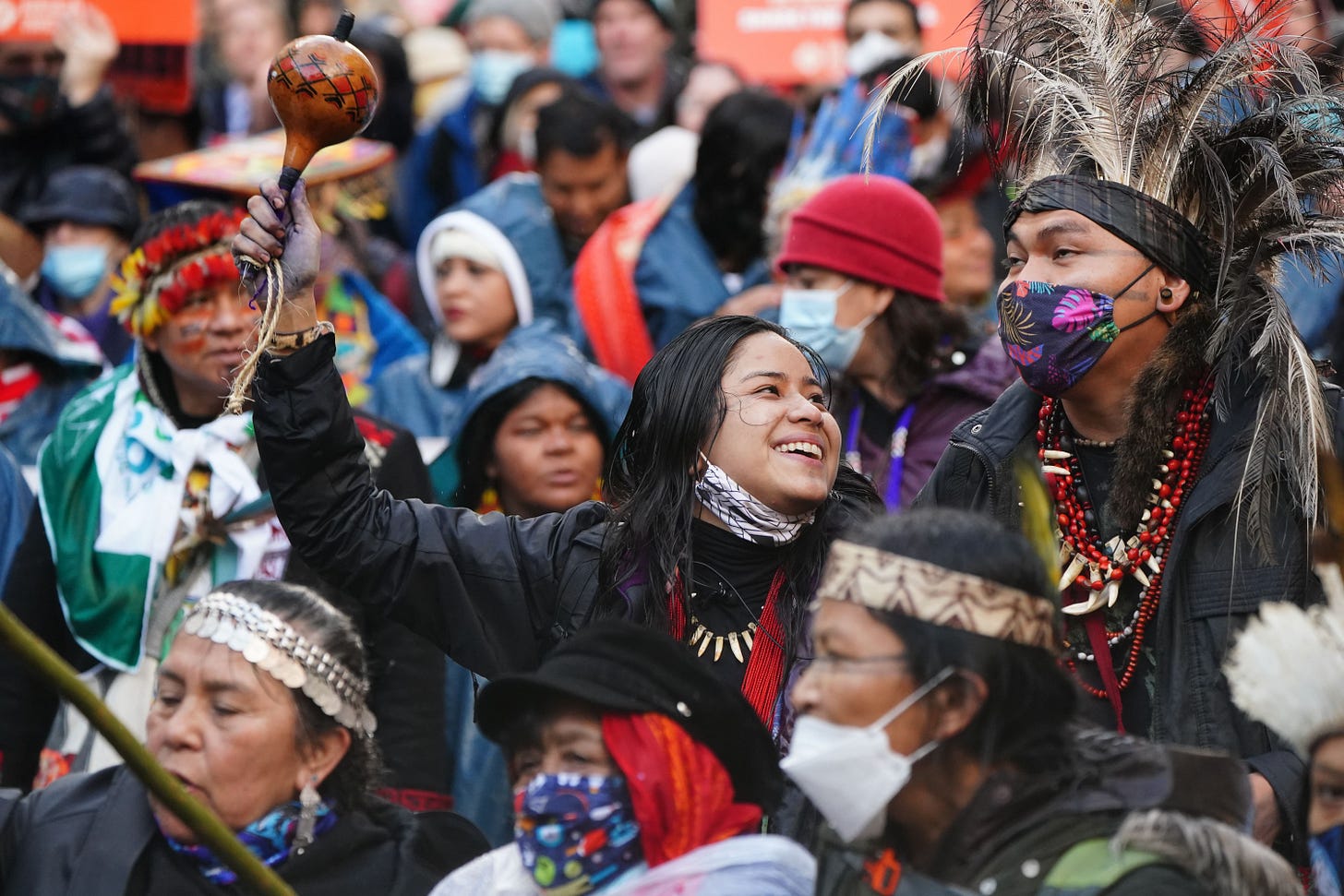🌱 The Grumpy Optimists #35
Your COP26 summary and what to expect in week two.
Happy Monday all and welcome to another week! 👋
The first week of COP26 is over. You’ve probably seen lots of media coverage on the climate summit, but it can be tricky to get beyond the headlines to understand what’s being agreed upon and whether we are making any progress. To make things easier, we've spent our Sunday pulling together everything you need to know about the key commitments which have been made this week and why they’re important. Don't say we don't treat you.
Read on for news of Iceland Foods becoming plastic neutral, the launch of a climate award for school children, and some incredible speeches from COP26.
As ever, thanks for reading, your support means a lot! Not a subscriber yet? Check out the link below.
🌍 COP26 - what's happened?
The first week of COP26 is over, and there have been a lot of positives so far but there is plenty to achieve as we head into week two. Let’s dig into the highlights from the last week.
💷 Climate finance
One of the biggest wins at COP26 so far has been the $130 trillion of private capital committed to transforming the global economy to net zero (through the Glasgow Financial Alliance for Net Zero). This commitment is an increase from $5 trillion when the UK and Italy assumed COP presidency. However, some have raised concerns that this is simply a pledge and the $130 trillion is just the Assets Under Management of the firms signed up to the alliance, so it may not translate into actual investments. We hope these commitments turn into plans for the global transition to net zero.
🌴 Deforestation
Over 100 world leaders whose countries house 85% of the world's forests - including Brazil - have pledged to halt and reverse deforestation by 2030. The pledge includes $14bn of public and private funds, just one week's worth of the US military budget, or half the market cap of the meme coin Shiba Inu. We'll let time decide if that's enough money to stop deforestation. Indonesia has also said the pledge is unfair.
🌫️ Tackling methane
The Global Methane Pledge, signed by 90 countries, is a voluntary agreement to cut methane emissions and may be the legacy of COP26. While much of the focus is on carbon emissions, methane heats the planet quicker than carbon (it’s 25x more powerful than CO2), but it's also much easier to target. The plans could prevent around 0.3°C of warming, a big deal for the climate and a welcome victory.
💚 Climate protests
Hundreds of thousands of people took to the streets across the world, including 100,000 in Glasgow, to show world leaders that they’re serious about tackling climate change. The line of protesters was almost an incredible 2 miles long, a powerful statement. We’re sad we couldn’t be there!
Our verdict so far?
So far it's difficult to tell whether it's all hot air and voluntary pledges or real climate action. Progress is being made and promises can still be broken, but they also provide real hope for effective and lasting change. Even India's seemingly disappointing pledges are enough to keep temperatures under 1.9 degrees:

Yes, more is needed and the reliance on voluntary pledges makes it hard to assess whether pledges will turn into action. Yet, true to our name, we remain confident that this event could be a catalyst to real climate action. What do you think?
👀 Articles to read
💪 Iceland Foods commits to being plastic neutral. Iceland is partnering with our friends Seven Clean Seas to collect the equivalent of their plastic footprint. Iceland plans to eliminate plastic packaging by 2023 but has already admitted this may not be possible. Note - plastic neutral isn't the same as plastic-free so read this piece for more.
🏭 1/2 of the world's fossil fuel assets worthless by 2036. Countries that are slow to decarbonise will suffer economic losses as the world transitions away from fossil fuels. The study shows that overproducing oil and gas is risky - continued investment in fossil fuels could see a financial crisis as these resources eventually become worthless.
💷 UK firms forced to show how they will reach net zero. By 2023 most big UK firms and financial institutions will be forced to show their plan to reach net zero as a major boost to end greenwashing and improve transparency. The caveat? The regulation is not mandatory. Instead, Rishi Sunak suggests that the market will decide whether a firm's plans are good enough.
📚 Duke of Edinburgh for climate action to launch. Education is a key weapon against climate change as the UK launches a 'Climate Leader' award to help kids understand sustainability and be rewarded for actions like local rewilding. The project won't be live until 2023.
💚 Things we're loving this week
There have been plenty of moving moments and speeches over the last week. These are our two favourites.
Mikaela Loach is an inspiring young activist - a medical student fighting for the future of the planet in her spare time. She has been involved in the #stopcambo campaign to prevent the UK from approving a new oil field. Watch her speech here.
Elizabeth Wathuti is a Kenyan activist and founder of Green Generation Initiative Kenya, which plants trees and provides environmental education. Her speech at the opening ceremony of COP26 asking leaders to open their hearts was inspiring. @lizwathuti
🎙️ A podcast to check out
Another podcast from The Guardian's Today in Focus - asking whether keeping to the 1.5C target set in Paris at COP21 in 2015 is realistic.
That’s all for now folks. If you see something you think we should feature email us at thegrumpyoptimists@gmail.com, we’d love to hear from you.
The Grumpy Optimists 💚






